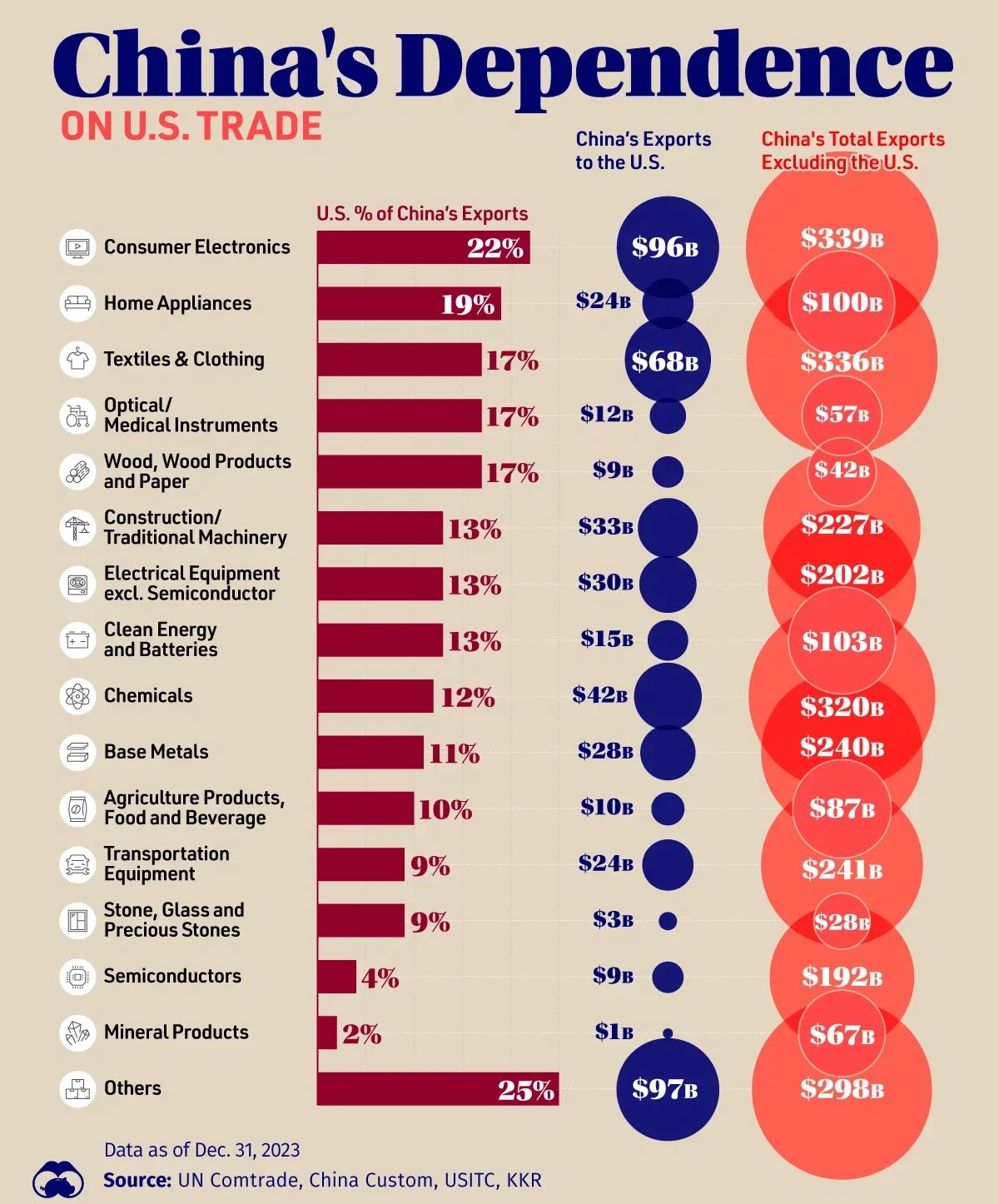antiterror13
Brigadier
Regarding american imports into china, what products can't china replace easily? I'm guessing semiconductor equipment, passenger aircraft and some high end pharmaceuticals and medical equipment. Anything else?
Blood plasma ?
Regarding american imports into china, what products can't china replace easily? I'm guessing semiconductor equipment, passenger aircraft and some high end pharmaceuticals and medical equipment. Anything else?
Here is a complete list of products that China imports from the US, according to the US-China Business Council:Regarding american imports into china, what products can't china replace easily? I'm guessing semiconductor equipment, passenger aircraft and some high end pharmaceuticals and medical equipment. Anything else?
US crude oil flow to China drops to near zero as tariff war rages onHere is a complete list of products that China imports from the US, according to the US-China Business Council:
Oil and gas: $17.6 billion
US crude oil flow to China drops to near zero as tariff war rages on
And:rebounded to 10.6mbd in March—the highest since October 2023—driven largely by record Iranian crude arrivals into the Shandong region.
However, since 2018, this pattern of behavior has been evolving. China’s economic statecraft—specifically its tools of coercion—has been expanding. Whereas in the past China mainly used basic trade or investment incentives and sanctions, today China is developing, testing, and deploying an entirely new collection of legal and regulatory tools for the explicit purpose of imposing targeted costs on companies and countries it sees as acting against its interests. In effect, these are precision-guided economic munitions, designed to inflict targeted and often substantial pain for political and geopolitical purposes.
China developed these tools in the last several years to give it better options to retaliate against the economic and technology restrictions of other countries, especially the United States. Since 2018, when the first Trump administration launched a trade war against China, Chinese officials have concluded that their past coercive tools were not fit for purpose. Beijing explicitly prioritized the development of a set of new legal mechanisms—often mirroring US export control rules, sanctions, and investment restrictions—to respond more effectively. China developed these instruments gradually and tested them episodically before seeking to ramp up their usage.
In these early days of the second Trump administration, all indications are that China will rely even more heavily on its new economic weapons as Beijing seeks to build negotiating leverage by inflicting highly targeted damage to a small number of high-profile US firms and industries. This approach stands out as an evolving and increasingly asymmetric response to Trump’s actions—and one that seeks to change the calculus for how far US policymakers can go in pressuring the wider Chinese export and tech sectors.

Export tax! There's no fucking exemptions to blanket tariffs; that's like asking for a time out or a don't-hit-me-in-the-face clause in UFC! Don't let this pussy ass bitch back out; we're having a full scale trade war whether he wants it or not!Important measure here.

Chinese "dependence"
Now, some of these suppliers are trying to keep their businesses humming by offering a simple—but illegal—solution to U.S. sellers: lying about the value of the Amazon merchandise you are importing to the U.S. in an effort to lower the duties you’ll have to pay under the new slate of tariffs.
Yes, that sounds a lot like customs fraud.
In emails and WeChat messages viewed by Fortune, around a half dozen Chinese suppliers proposed such illegal workarounds to executives from a mid-sized household goods brand with a large presence on Amazon.
“Many US companies use a lower value invoice to make customs clearance to reduce the tariff,” one supplier wrote to the U.S. brand. “You can think about it.”
“We can revise the declared value on commercial invoices to help duty costs,” another said.
Some also proposed another workaround called Delivery Duty Paid or DDP shipping. In this scenario, the supplier would handle getting the goods through customs, rather than the U.S. brand, and lie about the value of the shipment essentially on the brand’s behalf. The goal of this, at least in part, would be to create an artificial buffer between the U.S. seller and customs.
“Some have mentioned that they are doing this already for many of our competitors,” the founder of the household goods brand told Fortune. He requested anonymity to speak freely about the situation and to not burn long-time suppliers whose manufacturing he may still need. One of his suppliers said in a message viewed by Fortune that some China-based Amazon sellers use the same strategies to lower their custom bills.
Many U.S.-based Amazon sellers have long complained to this reporter that they suspect some of their China-based rivals undervalue their imports as a cost-savings tactic. Then, this week, the issue exploded into public view across the Amazon seller community when a China-based consultant about the current mindset of Chinese Amazon sellers, and stated that “the declared value of goods in a typical container from China to the U.S. usually ranges from $5,000 to $10,000.” Many U.S. Amazon sellers told Fortune that the number is unbelievably low, especially for the home and garden category, which includes furniture products, that the consultant operates in.
The irony that those are US companies not directly Chinese companies. Thanks to stooges in D.C. Chinese companies are not as exposed to the US market. Huawei doesn't sell smartphones there anymore, the EV market share of Chinese companies in the US is almost not existent, only 4% of Chinese made ICs are sold in the US and so on.Important measure here.

Chinese "dependence"
